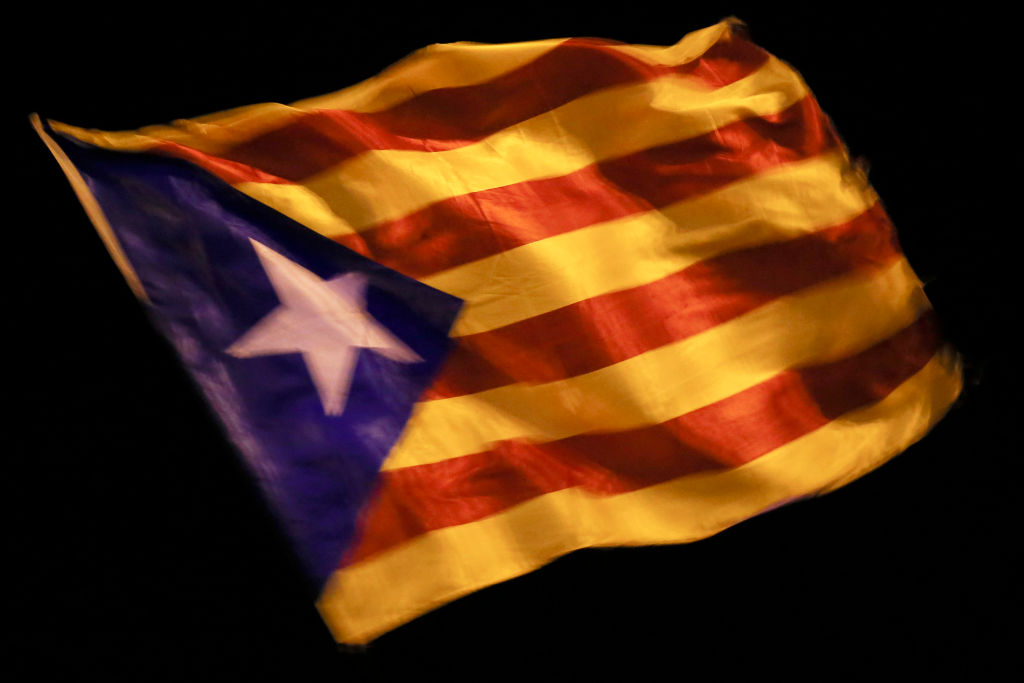The Catalan Parliament has voted for a unilateral declaration of independence from Spain. President Carles Puigdemont had toyed with taking the decision but in the end left it up to the legislature. It is now not a question of Madrid deposing him; it will have to shut down the whole operation.
Direct rule is all but inevitable. Madrid held out this nuclear option in the hope of dissuading the nationalists from taking the leap but the bluff has been called. After the scenes that greeted the October 1st referendum on independence, only an optimist would expect the Spanish imposition to be a bloodless affair. Most Catalans did not want to end up here — only 43 per cent of them turned out for the plebiscite — and will hope any period of direct rule is brief and peaceful. But tempers are frayed and there are true believers in the streets. Violence lurks nearby.
All this could have been avoided if Madrid had learned from the UK Government’s handling of Scottish independence. David Cameron was painstakingly reasonable with Alex Salmond and the Edinburgh Agreement under which the Scottish referendum was held was carefully drafted to be palatable to both sides. The SNP may have accepted the outcome of that plebiscite only as a formality but in all other senses, the Cameron approach was a success.
Instead, Spain sent in the police, and a heavy-handed coterie at that, to blockade polling stations and confiscate ballot boxes. Citizens queuing to cast their vote were pushed, thumped, and tear-gassed. Puigdemont and his separatist allies are far from blameless. They held an illegal referendum in defiance of the constitution and court rulings. This is a crisis they have been ramping up for a decade now, their zeal untempered by a wary population that wanted more autonomy but not full-blown independence.
The Catalan people are caught between two governments seized by stubbornness and preferring confrontation over compromise. But there is one government that will come out worse and that is the one in Moncloa Palace. The imposition of direct rule, far from securing the indissolubility of Spain, would likely have the opposite effect, pushing more Catalans towards independence and securing an irreversible majority for sovereignty. For older Catalans, direct rule can only stir memories of the Franco years during which Catalan politics and culture were suppressed. Madrid is raising ghosts that will not easily be exorcised.
Catalonia’s declaration will not change the EU’s stance, which has been supportive of Spain, much to the chagrin of Europhile nationalist movements across the Continent. Within the SNP, for example, there are rumblings of discontent over the European Commission’s handling of Catalan independence. The SNP has never fully rationalised its asymmetric nationalism — our oppressors in Westminster, our colleagues in Brussels — and so its members have no reference point when they see an institution they have been instructed to embrace unquestioningly behaving with hostility to one of their cherished causes. During the 2014 independence referendum, Scottish nationalists insisted, and I suspect truly believed, that Europe would welcome them with open arms — a sunny conviction impervious even to the plainest statements to the contrary from the European hierarchy. Catalonia marks a thudding realisation that Brussels isn’t a colleague after all.
The EU is to blame for this rise of Euroscepticism in one of the most loudly, if not coherently, pro-European governing parties on the go. In comparable nationalist parties across Europe similar doubts are setting in. The EU claims to be the instrument of European democracy. As the Catalans are learning, and the Scottish Nationalists are lamenting, it is really the instrument of European governments.







Comments